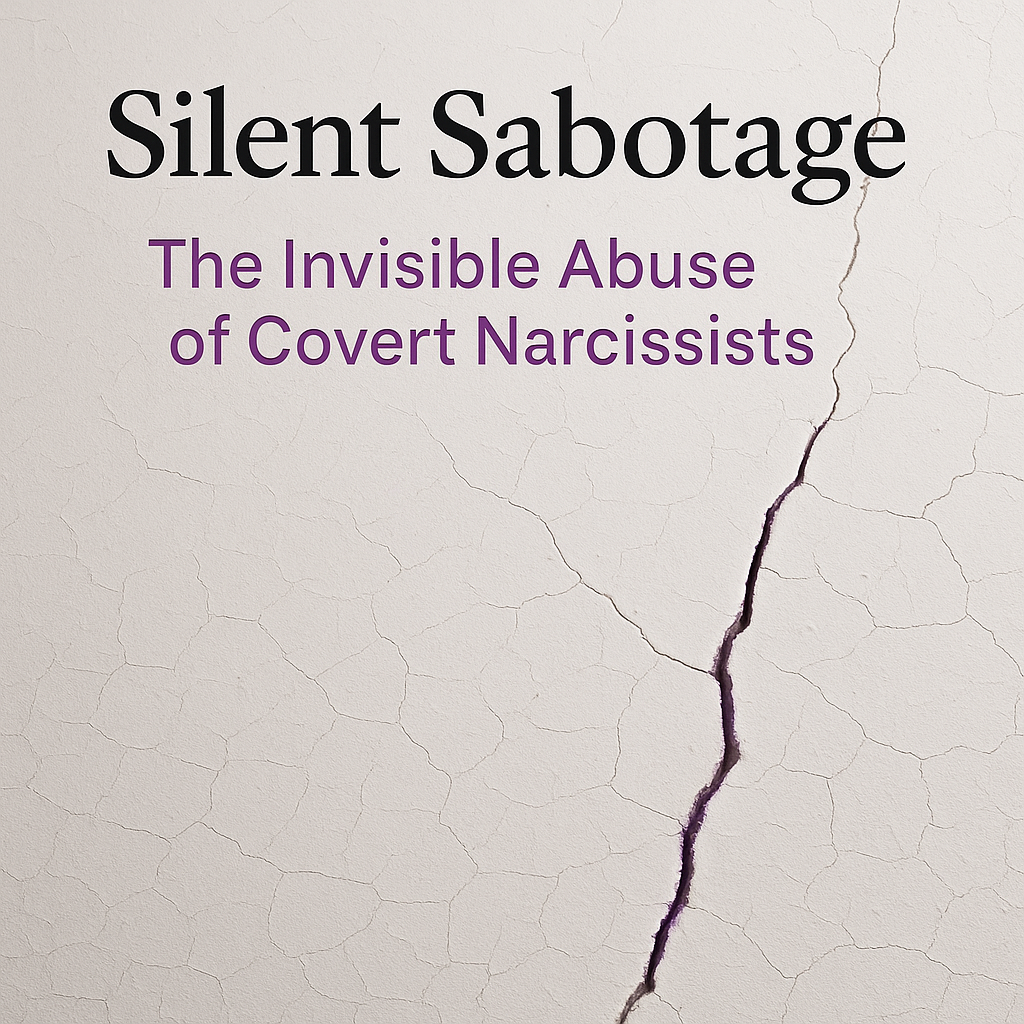
Silent Sabotage: The Invisible Abuse of Covert Narcissists
Share
Silent Sabotage: The Invisible Abuse of Covert Narcissists
By Festus Joe Addai
Some abuse leaves bruises you can see. But the most dangerous kind of abuse leaves no physical trace — only confusion, self-doubt, and emotional collapse. Covert narcissists master the art of silent sabotage: slow, almost invisible destruction that disorients and dismantles you from the inside out.
"A covert narcissist doesn’t break you with blows — they break you with silence, withdrawal, and calculated indifference."
How Silent Sabotage Works
Their tactics are so subtle you often blame yourself for feeling hurt. You might tell yourself:
- "Maybe I’m overreacting."
- "Maybe I’m too sensitive."
- "Maybe it’s my fault things feel off."
That’s the genius of covert abuse — it operates under the radar. It erodes your confidence, your sanity, and your strength without leaving a mark anyone else can see.
Key Weapons of Silent Sabotage
Here’s how covert narcissists destroy you quietly:
- Emotional Withholding: Love, affection, praise — all become transactional tools, given or withdrawn based on your obedience.
- Passive-Aggressive Remarks: Sarcasm, backhanded compliments, and subtle insults designed to destabilize you without confrontation.
- Stonewalling: Silent treatment used to punish and control, leaving you desperate for reconciliation.
- Minimizing Your Success: Downplaying your achievements to keep you doubting your worth.
- Sabotaging Your Relationships: Quietly turning others against you or creating seeds of doubt among your friends and family.
"They don’t stab you in the back — they quietly loosen your foundation until you collapse under your own weight."
The Psychological Impact
Victims of silent sabotage often experience:
- Chronic self-doubt ("Am I imagining things?")
- Low self-esteem ("Maybe I’m not good enough.")
- Increased isolation ("Why do I feel so alone?")
- Emotional exhaustion ("Why am I always apologizing?")
It’s a form of psychological corrosion, slowly eating away at your ability to trust yourself, make decisions, or believe in your worth.
Why It's So Hard to Explain
If you try to tell someone about the abuse, it can sound trivial or paranoid:
- "He just forgot to compliment you — why are you upset?"
- "She’s just tired — why take it personally?"
- "You’re probably reading too much into it."
This gaslights you even further, driving you deeper into confusion and isolation. Silent sabotage is invisible because it's designed to be.
Reclaiming Your Reality
The first step is believing your own experience — even when others don't see it. Subtle cruelty is still cruelty. Manipulation without screaming is still manipulation.
Start by documenting patterns, not isolated incidents. Abuse thrives on isolated moments; patterns reveal the truth. Your mind knows what it felt. You don't need visible scars to validate your pain.
"When someone’s patterns consistently erase your worth, believe the pattern — not their excuses."
Video credit: This content was created by the Faithfull Living and is featured here as part of our curated series on covert narcissism. All rights belong to the respective owner.
Access All Blogs Here

